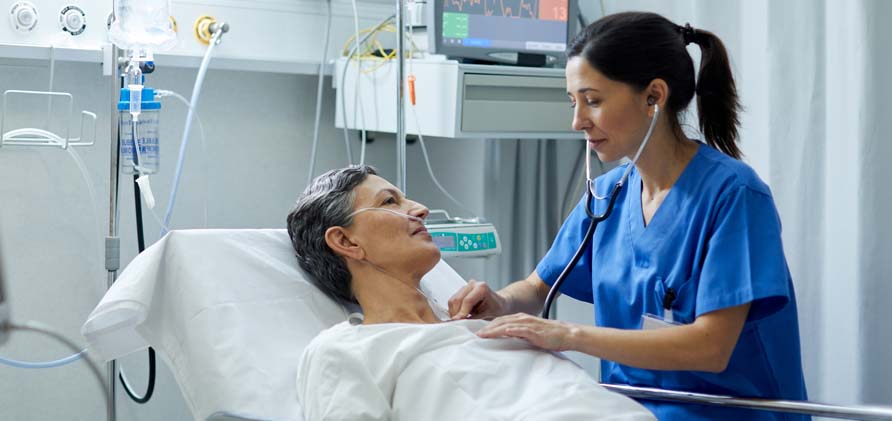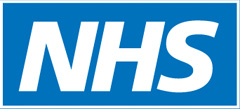Building your diagnostic skills is a key part of any medical training programme, but this must always be carried out in a way that doesn’t jeopardise patient safety. This was exactly the thinking behind the development of eIntegrity’s Acute Medicine elearning programme (ACUMEN).
Available online, ACUMEN is packed with interactive, scenario-based exercises that enable learners to practise their skills in diagnosing a whole host of patient conditions in a safe, virtual environment.
“We’ve designed the programme to be as realistic as possible and give learners the chance to test out their diagnoses and make mistakes in a safe way,” explains Mike Jones, Clinical Lead for the ACUMEN programme.
Putting junior trainees through their paces
ACUMEN is aimed at medics in the early stages of physician training and those working in internal medicine. It has been developed by NHS England elearning for healthcare in partnership with the three UK Royal Colleges of Physicians.
The content is arranged into scenarios backed up by knowledge-based sessions which cover the major forms of presentation to acute medical units, including:
- the four main emergency presentations (the unconscious patient, the shocked patient, cardio-respiratory arrest and anaphylaxis)
- the most common symptom-based presentations, such as breathlessness, headache and chest pain
- less frequent scenarios that are still seen in acute care.
Learners can then test their knowledge using interactive exercises and compare the findings with those from the expert who designed the session. Background medical information for each virtual patient is presented with the scenario, as well as details of their vital signs and symptoms.

“As a learner, you have to use all the facts and figures you’re presented with to ask questions, come up with a differential diagnosis and devise a treatment plan,” explains Mike.
“You can then track the virtual patient’s progress as your treatment plan is implemented. Next, you can compare the outcomes with those from a clinical expert, helping you to identify any gaps in your understanding or training needs. We’ve deliberately organised the programme around a patient’s symptoms rather than a specific condition – because that’s how you’re presented with a case in the real world,” says Mike.
“We’ve covered all the common scenarios but also the less common ones – that sometimes appear out of the blue and aren’t covered in much depth on the curriculum.”
Hassaan Pervez is just one of thousands of clinicians using this programme in the UK and internationally. Hassaan is a trainee registrar in diabetes and endocrinology who originally graduated in Pakistan but has completed his core medical training in the northeast of England.
“I have used ACUMEN regularly throughout my training for ongoing development and general reference,” explains Hassaan.
“The content enhances your knowledge and skills to manage different medical problems. It is easy to navigate and very user friendly/self-explanatory. You can study at your own pace and track your progress. On completion, you can also download certificates to provide evidence of competence.”
Hassaan sees the interactive sessions as a key strength of the programme.
“Step by step, you’re asked about the investigations required and the results for a virtual patient in a given scenario,” he says. “You have to choose the right treatment options, doses of medicine and you receive feedback on the conclusion of each case. This experience has proved so useful in real clinical practice.
“As an example, two weeks ago, I was treating a patient who had suffered anaphylaxis – which is a condition that I don’t see that frequently. Thanks to ACUMEN and its step-by-step approach, I was more confident in managing this case.
“ACUMEN is a great supplement to face-to-face or other training for improving skills and knowledge in managing acute medical presentations,” concludes Hassaan.
Getting the programme off the ground
The Acute Medicine programme is one of the longest-running projects for NHS England (NHSE) elearning for healthcare.
“I approached NHS England about producing a programme on acute medicine in 2010,” recalls Mike Jones, who spearheaded the development of ACUMEN as the clinical lead. “This was back in the early days of elearning within NHSE.
“I spoke with Professor Dame Jane Dacre, past president of the Royal College of Physicians, who was at the time medical director of the MRCP(UK). She was very supportive,” he says.
“We talked with Dr Julia Moore OBE and Alan Ryan, who were leading the development of the elearning programmes within NHSE. They were also extremely keen to help.
“Right from the outset, we wanted to make ACUMEN as interactive as possible. We decided that a scenario-based format would provide the most realistic experience of being in a clinical environment.”
The content has been written by consultants from a broad range of specialties and by senior physician trainees. None of the writers receives any payment for this work – it is all completed on a pro bono basis.
“We’re exceptionally grateful to all the clinicians who have contributed to the project over the years. ACUMEN simply wouldn’t exist without their input,” stresses Mike.
Supporting learners in the UK and internationally
Over the years, ACUMEN has proved increasingly popular with learners – usage has more than doubled over the past three years. In 2020, there were more than 150,000 active users and over 100,000 session launches – making it the biggest year yet for the project.
The content is now used by physician trainees across the UK and internationally.
“ACUMEN is equally applicable outside the UK because patient presentations are universal, regardless of your location in the world,” says Mike. “However, we appreciate that conditions are managed in different ways across the world – and this is often determined by the resources and equipment available. So, we are mindful of this when developing the content.”
Keeping pace with clinical developments
The team take all feedback from learners into consideration when updating the training materials.
ACUMEN is reviewed regularly to ensure that the content reflects the latest clinical developments and guidance.
“Medicine moves on – and it’s vital that the content reflects these developments,” explains Mike. “As an example, when we first launched the programme, there were few successful treatments that slowed progression in interstitial lung disease. But now there are various options and we are updating the content to reflect this.
“Ultimately, our aim is to cover the full acute medicine syllabus,” says Mike. “We are continuing to expand the sessions and the coverage of each topic. We want to ensure that ACUMEN covers all the main elements so that a junior trainee is well prepared for clinical work in the real world.”
Learn more about the ACUMEN programme.




